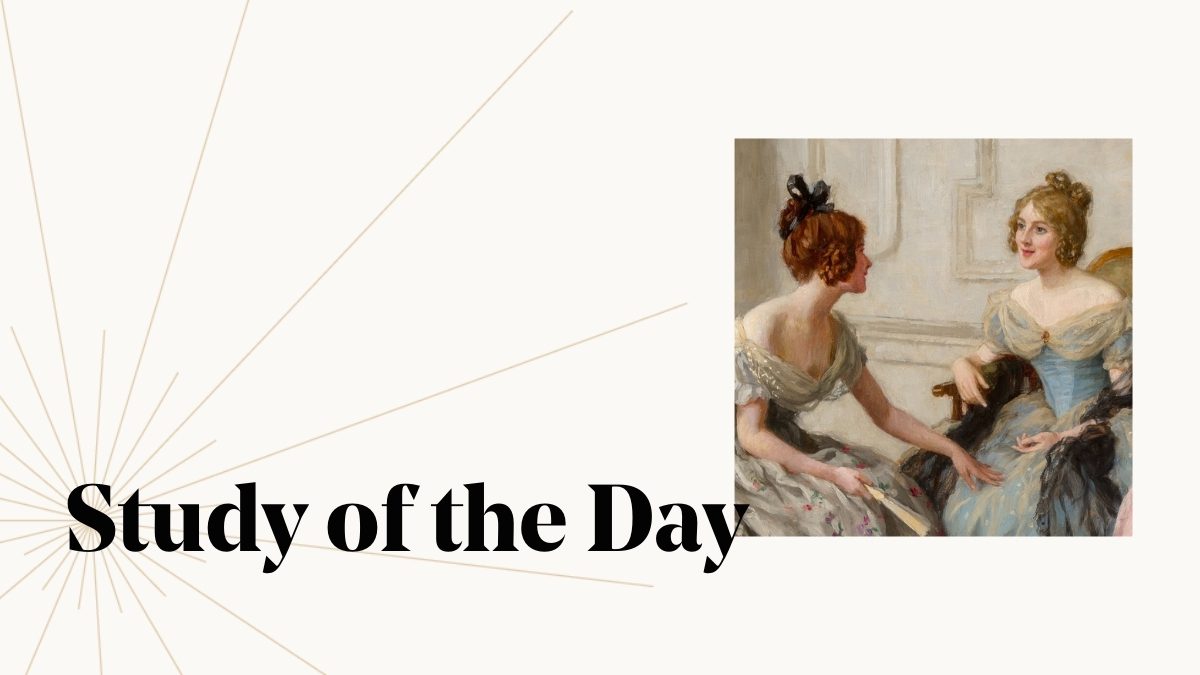In our Study of the Day feature series, we highlight a research publication related to a John Templeton Foundation-supported project, connecting the fascinating and unique research we fund to important conversations happening around the world.
Gossip arrived in the English language through natural childbirth. With a title combining the roots for God and sibling, a gossip was a child’s baptismal sponsor, often one of the women from a community who would gather to assist a mother in childbirth and, incidentally, share pertinent news. Gossip became a verb via Shakespeare, still in the sponsoring sense (“petty, fond adoptious christendoms / That blinking Cupid gossips”), before drifting towards its current meaning. Etymologies aside, gossip in its present sense seems to have always been with us, and despite various moral and cultural concerns with its negative aspects, it can be argued gossiping is part of what makes us human.
Social grooming at a distance
In 1996, evolutionary psychologist and primatologist Robin Dunbar famously argued that human language itself may have evolved for the purposes of gossip — and that the latter evolved as a more efficient way to practice the social grooming that is common among primates. You can only pick fleas off one individual at a time, but dishing juicy hearsay can cement bonds with multiple listeners simultaneously. Gossip doesn’t just strengthen social bonds; it also helps communities share useful information and form shared opinions that are helpful for joint endeavors.
But how does gossip spread through groups? What parameters help or hinder its spread and its potential prosociality? A recent study by University of Pennsylvania researchers Mari Kawakatsu, Taylor Kessinger, and Joshua Plotkin, published in the Proceedings of the National Academy of Sciences, uses game theory to model the flow of gossip and its effects in a community of strategic agents. In particular the authors were looking at gossip as a way of building indirect reciprocity, in which gaining a reputation as a helpful person makes someone more likely to receive help, even from those she hasn’t directly assisted. The study set up mechanistic models for human behavior, looking at how rational agents would choose to cooperate with or defect from other members based on the information they received and shared.
Biased blabber and peer-to-peer prattle
In one set of experiments Kawakatsu et al looked at what kinds of gossip networks most helped the system of agents reach positive equilibrium — those centered around a single source of gossip or those whose agents share information with randomly selected peers. Somewhat surprisingly, they found that under the appropriate parameters, the two forms of gossip were mathematically equivalent — the word got out either way, with the same effects on cooperation. One key parameter for the equivalence was maintaining a limited group size. Given an infinite group, peer-to-peer gossiping dissipated without creating any consensus.
It seems uncontroversial that the sharing of information in a community can be a positive good. But what if the information isn’t totally true? What can the models tell us about how biased gossip affects a community? The authors examined how both noise (transmission errors) and bias (intentional misstatements) could hinder or facilitate cooperation among the agents in their model. In the case of bias, they found that the effect depended on both the magnitude of the misrepresentation and whether it was positive or negative. When biased gossip reports that a bad individual is good, the models suggest it can still expand the potential for cooperation in the community. In some cases, the models showed that even a strong negative bias against individuals could also have a stabilizing effect.
Gossip’s own bad reputation isn’t just that it is often wrong or malicious, but that it is idle and frivolous, a useless waste of individual and communal energy. Game theory suggests otherwise — that like those women gathering at momentous private moments to share wisdom, news and welcome new life, gossip remains part of the essential work of being human.
Nate Barksdale writes about the intersection of science, history, philosophy, faith and popular culture. He was editor of the magazine re:generation quarterly and is a frequent contributor to History.com.
